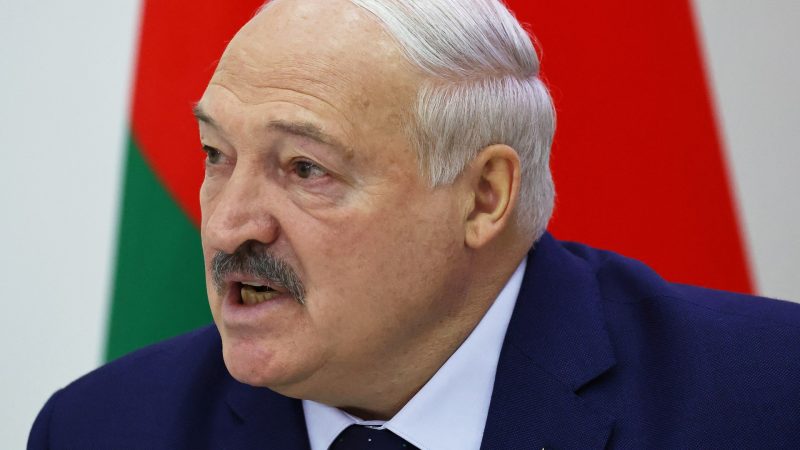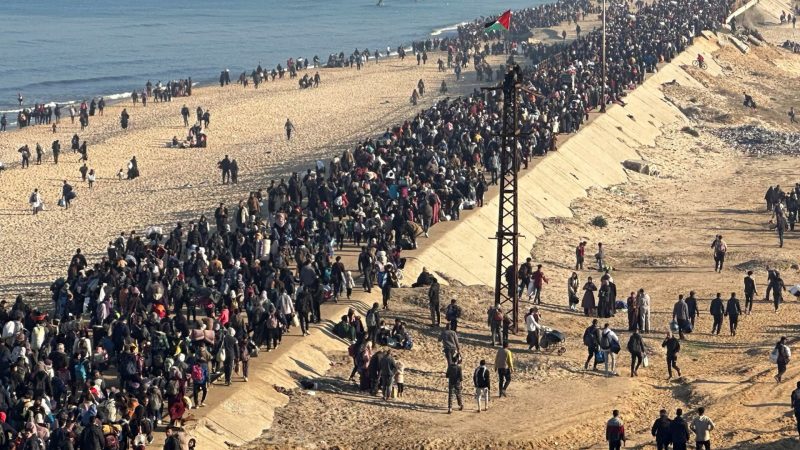Will the EU ease Syria sanctions? Inside the bloc’s dilemma | Syria’s War News

[ad_1]
Top diplomats of the European Union are scheduled to meet on January 27 to discuss easing sanctions on Syria to revive the country’s struggling economy amid questions about the political direction that the war-torn nation’s new administration might take.
When the EU foreign ministers gather, the specific sanctions they will consider involve travel restrictions, Syrian exports of oil and gas, and access to infrastructure and humanitarian assistance, in addition to the gradual removal of restrictions on financial transactions, two European diplomatic sources with knowledge of the ongoing discussion in Brussels told Al Jazeera.
Earlier in January, the United States eased some restrictions for six months to facilitate the flow of humanitarian aid, some energy sales and personal remittances into Syria.
The EU is pondering its own move. In the past weeks, a flurry of EU officials have shown up in Damascus to show support for the new interim government led by members of Hayat Tahrir al-Sham (HTS), the rebel group that overthrew Bashar al-Assad. The UN imposed sanctions on the group in 2014 due to its ties to al-Qaeda. And in 2018, the US and the EU designated HTS as a “terrorist” organisation.
But even while reaching out to Ahmed al-Sharaa, Syria’s interim leader, EU leaders have issued warnings: They want the new Syrian leadership to form an inclusive government that respects human rights and minorities.
The 27-member bloc is wary of what direction al-Sharaa might take. “It doesn’t look like there have been incontrovertible indications that everything has changed,” said one of the two diplomats, referring to HTS’s poor record in human rights. In 2020, the EU condemned HTS’s “systematic practice” of torturing and murdering civilians living in areas under its control and said the group’s actions may amount to war crimes or crimes against humanity.
The worst scenario would be removing sanctions and then witnessing the new administration imposing restrictions on women or minorities’ rights, the diplomat added.
Al-Sharaa joined al-Qaeda in Iraq in 2003 and later established the armed group’s branch in Syria, known as Jabhat al-Nusra. It severed ties with al-Qaeda and joined with other factions to rebrand as HTS in 2017. Before the lightning offensive that put an end to the al-Assad regime in December, the group controlled the country’s northwestern region of Idlib, where it was estimated to have up to 30,000 fighters.
The Syrian leader has repeatedly disavowed extremism. He has also sought to present a moderate image promising to usher in an inclusive government. Convincing Western powers to lift sanctions is critical for the success of the new government as the initial euphoria that followed the fall of al-Assad could pave the way to frustration and violence if economic relief does not come fast enough, experts say.
An estimated 90 percent of the Syrian population lives in poverty. The country’s gross domestic product (GDP) amounts to less than $9bn today, compared with $60bn in 2010. Most areas receive only two to three hours per day of state-supplied electricity. The new administration lacks resources to tackle daunting tasks – from paying civil servants and reconstructing entire cities reduced to rubble to setting a road map towards elections and guaranteeing heat during winter.
“It is easy to fail the test – so many reasons for things to go wrong,” said Sultan Barakat, professor of public policy at Qatar’s Hamad Bin Khalifa University.
Barakat argued that sanctions that directly hinder the country’s ability to reconstruct – such as those affecting the diaspora to invest in the production sector to those on travelling – should be removed immediately and with no strings attached. The EU could discuss restrictions on individuals or the HTS at a later stage.
“We can only judge by what they [the al-Sharaa-led administration] say and what they say is fine – now they [Western governments] can help materialise what they say into action or they can be suspicious and create obstacles for them,” he said.
Following Russia and Iran, Syria is the world’s third country with the highest number of sanctions. In the 1970s, the US added the country to the list of states sponsoring “terrorism” over its occupation of eastern Lebanon. Several other waves of restrictions – both from the US and the EU – were imposed in the following decades, including for al-Assad’s support to Hezbollah and his brutal repression of pro-democracy protests in 2011 that was followed by more than 13 years of war.
Among the most debilitating sanctions is the US-imposed Caesar Act in 2019, which effectively banned states and private businesses from doing business with al-Assad’s government. The EU imposed sanctions on exports and imports, infrastructure projects and financial support for trade.
Without fully removing restrictions on the energy sector and financial transactions – on top of personal remittances – the US waiver and the EU proposal for sectoral sanctions might prove inadequate for the new administration to guarantee stability and attract private investors, said Samir Aita, a Syrian economist and president of the France-based Circle of Arab Economists.
“You need to accelerate the process,” Aita said. “If there is no functioning of the Syrian state and its institutions and only NGOs can act, they will end up replacing the state,” he said. With the central bank still under sanctions, the country risks turning into “a cash economy” which could translate into uncontrolled flows of money getting to different groups and militias, “and that means chaos”, he added.
Europe would find itself directly impacted by such destabilisation. “The EU has been in the direct line of fire of the Syrian conflict in terms of migration, terrorism and wider instability, so there is a clear interest in seeing a stabilised Syria moving forward,” Julien Barnes-Dacey, director for the Middle East programme at the European Council on Foreign Relations.
More than a million Syrians have sought refuge in Europe since the onset of the war. And with anti-migrant sentiments rising across the bloc, some European governments pledging to create the economic conditions for refugees to return home could prove a beneficial electoral stunt.
But political engagement has not been matched by any meaningful material step to support the transition so far, Barnes-Dacey said. “There is a real risk that if they wait too long, the deteriorating conditions will undermine prospects of the transition they want to see delivered,” he added.
[ad_2]
Source link





